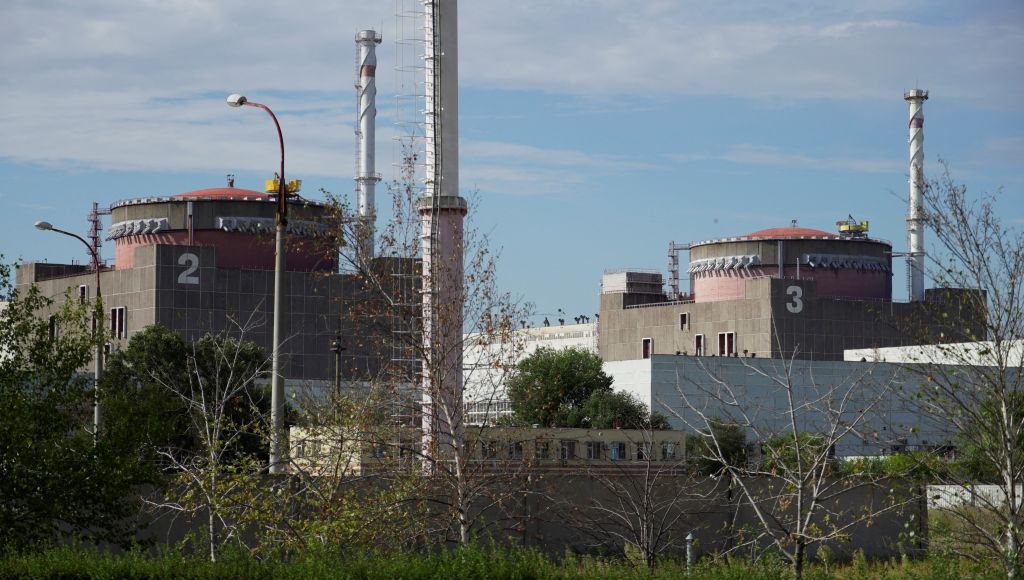Nearly 5,000 workers evacuated from Russian-occupied nuclear power plant in Zaporizhzhia, minister says.
Support independent journalism in Ukraine. Join us in this fight.
Become a member Support us just onceAround 5,000 workers were rescued from the Russian-occupied Zaporizhzhia Nuclear Power Plant (ZNPP), Energy Minister Herman Halushchenko said on July 19 during a press conference. The Zaporizhzhia nuclear plant, Europe's largest nuclear power station, has been under Russian occupation since March 2022. Its position near the front line has led to heightened nuclear safety risks throughout Russia's full-scale war.
All evacuated employees were the workers of Ukraine's nuclear energy agency, Energoatom, according to Halushchenko. Halushchenko also brought up that since February 2024, Russian forces have banned access to the plant for those employees who remained in the occupied territory. "This is the personnel that we plan to attract to complete the construction of Khmelnytskyi Nuclear Power Plant units," he added.
In April, Energoatom started building reactor units 5 and 6 at the Khmelnytskyi Nuclear Power Plant using U.S. technology that would help prevent power outages in case of Russian attacks. After the reactor units 5 and 6 are built and units 3 and 4 are put into operation, the Khmelnytskyi Nuclear Power Plant's power generating capacity will exceed the one of the Zaporizhzhia plant, according to Energoatom The United Nations General Assembly adopted a resolution on July 11 demanding that Russia withdraw from the Zaporizhzhia Nuclear Power Plant and restore full control of the facility to Ukraine.
The resolution also condemns Russia for failing to implement safety protocols set out by the International Atomic Energy Agency (IAEA) and calls on Moscow to allow IAEA inspectors full access to the plant's facilities.
Energoatom: Workers restore power connection to Zaporizhzhia Nuclear Power Plant after potential blackout warning
"Russian (forces) continue to create an extremely dangerous situation" at the Zaporizhzhia Nuclear Power Plant, said Energoatom President Petro Kotin.
